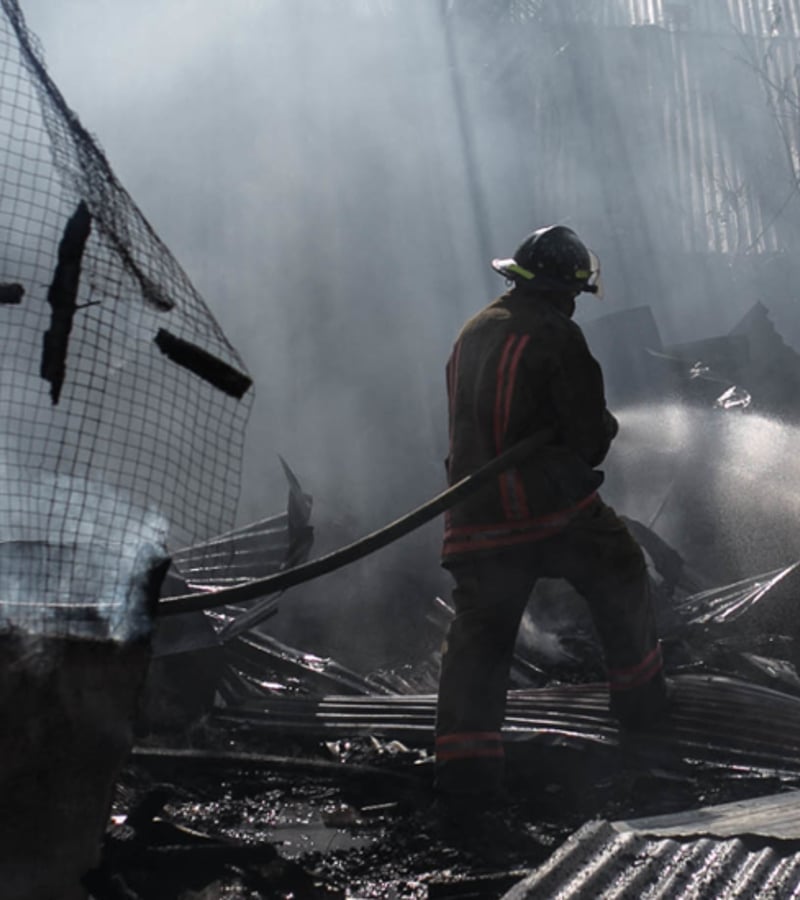Leading and Managing in the Emergency and Trauma Sectors Symposium

NIODA SYMPOSIUM 2018
Leading and Managing in the Emergency and Trauma Sectors Symposium
Exploring the dynamics of interoperability before, during and after crises.
Saturday 15th September 2018
Friday 14th optional pre-symposium dinner & accommodation
Leading and Managing in the Emergency and Trauma Sectors Symposium
This year, NIODA’s Annual Symposium will explore how leaders and managers in the emergency and trauma sectors can improve interoperability and collaboration within and between organisations.
The study of organisation dynamics explores conscious and unconscious drivers which shape the way we work together. Unconscious behaviours are at play in every group or team and are constantly changing. With better insight, leaders can achieve organisational goals and better care for their people.
The Symposium will bring together those who research and specialise in organisation and inter-organisation dynamics with those who lead and manage teams in the emergency and trauma sectors, to explore the dynamics of interoperability together. Relevant research and helpful frameworks to ‘see’ these dynamics and attend to them will be shared.
Speakers and panel members include:

Associate Professor Christine Owen,
University of Tasmania
Christine Owen is currently an Associate Professor and Research Fellow in emergency management with the Tasmanian Institute of Law Enforcement Studies [TILES] at the University of Tasmania. Christine researches and facilitates professional development in the areas of human factors and organisational culture, decision making under pressure, debriefing, leadership and adversity as well as coaching and mentoring
Dr. Rob Gordon,
Clinical Psychologist
Rob Gordon PhD is a clinical psychologist and group psychotherapist who has worked with disaster affected communities throughout Australia and New Zealand for thirty years. Rob also provides services to a wide range of health, welfare and other human service agencies for workplace stress and trauma.


Deb Martindale,
SentientCo.
Deb Martindale has worked extensively with emergency management and policing organisations. Deb uses a systems and organisation dynamics lens in her work. She has a particular interest in working with inter-organisation dynamics.
Details of all papers to be presented available soon…
Leading and Managing in the Emergency and Trauma Sectors Symposium
15 September 2018, 9am – 4:30pm from $260 in Mt Macedon, Victoria. Don’t miss out!
Further Insight
Interested? Some of the concepts that have inspired this Leading & Managing in the Emergency & Trauma Sectors Symposium are introduced below.
Interoperability and inter-organisation dynamics
Interoperability refers to the capacity of different groups to work together. It requires high levels of communication and collaboration, but even with effective protocols and good intent, it can be very challenging. Research shows that collaboration requires a number of features, including but not limited to:
- identification with the purpose, tasks and values of the multiparty team;
- highly functioning communications;
- mutual understanding of different roles and organisational cultures;
- respect and trust;
- structural, cultural and resource support for collaborative commitment;
- well-designed processes;
- rewards for collaboration and constraints to mitigate ‘slippage’; and
- clear and competent leadership with skill in emotional intelligence.
However, even with these practical elements in place a deeper understanding about what really holds teams back or diverts them from their task can be gained. Why do teams, even with all of the above in place, still sometimes stall or seem to lack the necessary energy to make an impact?
Cohesion typically experienced during response phases can be hard to sustain
In response to an event or crisis, teams typically unite against a common ‘enemy’ (the event). In these scenarios, there is often a higher acceptance for authorised leadership, and confidence can be found in well-defined roles and agreed processes. The structure of the ‘system’ creates a sense of safety.
Beyond response mode, individuals, teams and organisations tend to withdraw for respite into their own familiar territories and ways of working, communication is experienced as harder to maintain, and the rewards for collaboration become less immediate and evident. This respite is an important form of recovery, however ideally, should not close-down interoperability.
Further, while response systems and roles are very well defined, and organisations are sensibly trained and prepared, this is not always as true for ‘before’ and ‘after’ activities. Here, the mission can be harder to clearly envisage, roles become increasingly vague, and there are many competing distractions. How can we explore these dynamics and better work with this reality?
Resistance to change, and leading sector reform
In order to change, people must first feel secure. Providing an environment in which people can better tolerate difficulties, risks, or anxieties is a necessary factor to successful change. When thoughts or emotions cannot be contained, some predictable behaviours emerge in organisations.
For example, when a team’s identity or the scope of their task is unclear, conflict between groups can emerge, with a ‘them and us’ rather than a ‘we’ mentality. This can occur between organisations, or between sub-systems and teams within an organisation.
Other group behaviours resisting change are common, ranging from apathy and absence to unexpected emotion or territorial behaviour. These ‘social defences’ have been well researched and look beyond how individuals react, instead focusing on how whole systems work unconsciously to defend against change or risk. The important news is that once social defences are explored and recognised, the work of an organisation can continue more productively.
Prevention, response and recovery activities are all equally important aspects in emergency management and trauma. It is the resilience and sustainability of organisations, and their ability to work well together in each of these phases that will lead to even greater capacity and ultimately, safer outcomes for communities.
Partners of attendees
Partners are welcome to attend the dinner and stay on the Friday evening as accommodation is in double rooms with an ensuite. On the Saturday partners can enjoy the on-site 10 acres of the beautiful gardens, take a short drive to the historic townships of Kyneton, Woodend, Malmsbury or Trentham or visit the fine local wineries in the Macedon region. The area is known for fine food, interesting shopping and historic sites.
When & Where
Leading and Managing in the Emergency and Trauma Sectors Symposium
DATE:
Saturday 15th September 2018
Optional dinner & accommodation Friday 14th
TIME:
9am – 4:30 pm
LOCATION:
Victorian Emergency Management Institute
601 Mount Macedon Road, Mount Macedon, Victoria 3441
Symposium Only
GREAT RATE
AUD$260
- Full day symposium
- Four panelists
- Numerous paper presentations
- Morning & afternoon tea
- Lunch
- Accomodation not included
- Dinner Friday 14 not included
- Full breakfast Saturday 15 not included
Symposium, Dinner, Accommodation & Breakfast
ALL INCLUSIVE RATE
AUD$474
- Full day symposium
- Four panelists
- Numerous paper presentations
- Morning & afternoon tea
- Symposium lunch
- Dinner Friday 14th
- Accommodation Friday 14th
- Full breakfast Saturday 15h
Dinner, Accommodation & Breakfast Only
Partners NOT attending symposium
AUD$83
- Dinner Friday 14th
- Accommodation (shared room)
- Full breakfast Saturday 15th
- Symposium not included
- COST IS $214 IF OWN ROOM REQUIRED
About NIODA
The National Institute of Organisation Dynamics Australia (NIODA) offers internationally renowned post-graduate education and research, and decades of experience consulting with Australian organisations. In 2018, their annual Symposium will explore the dynamics of interoperability and work within the emergency and trauma sectors.
The study of organisation dynamics brings together socio-technical and psychoanalytic disciplines to explore the unconscious dynamics that exist in every group, team or organisation. Learning more about these theories, and reflecting on the experience of them, can support leaders and managers to unlock great potential in their organisations, tackling issues through a whole new light.
Related insights

Reflections on completing a Masters

Revelation, Not Salvation
Salvation is about being rescued from difficulty. It’s the quick fix, the ready-made model, the externally imposed solution. Revelation, on the other hand, is about discovery.

Australia a mind at home in the World?
2025 has been a tumultuous year that has built on a traumatic 2024 and a hyper turbulent 2020’s, in many ways, the world is still emerging from the shock of Covid-19 and associated exponential digitalisation of the social, political and economic context.